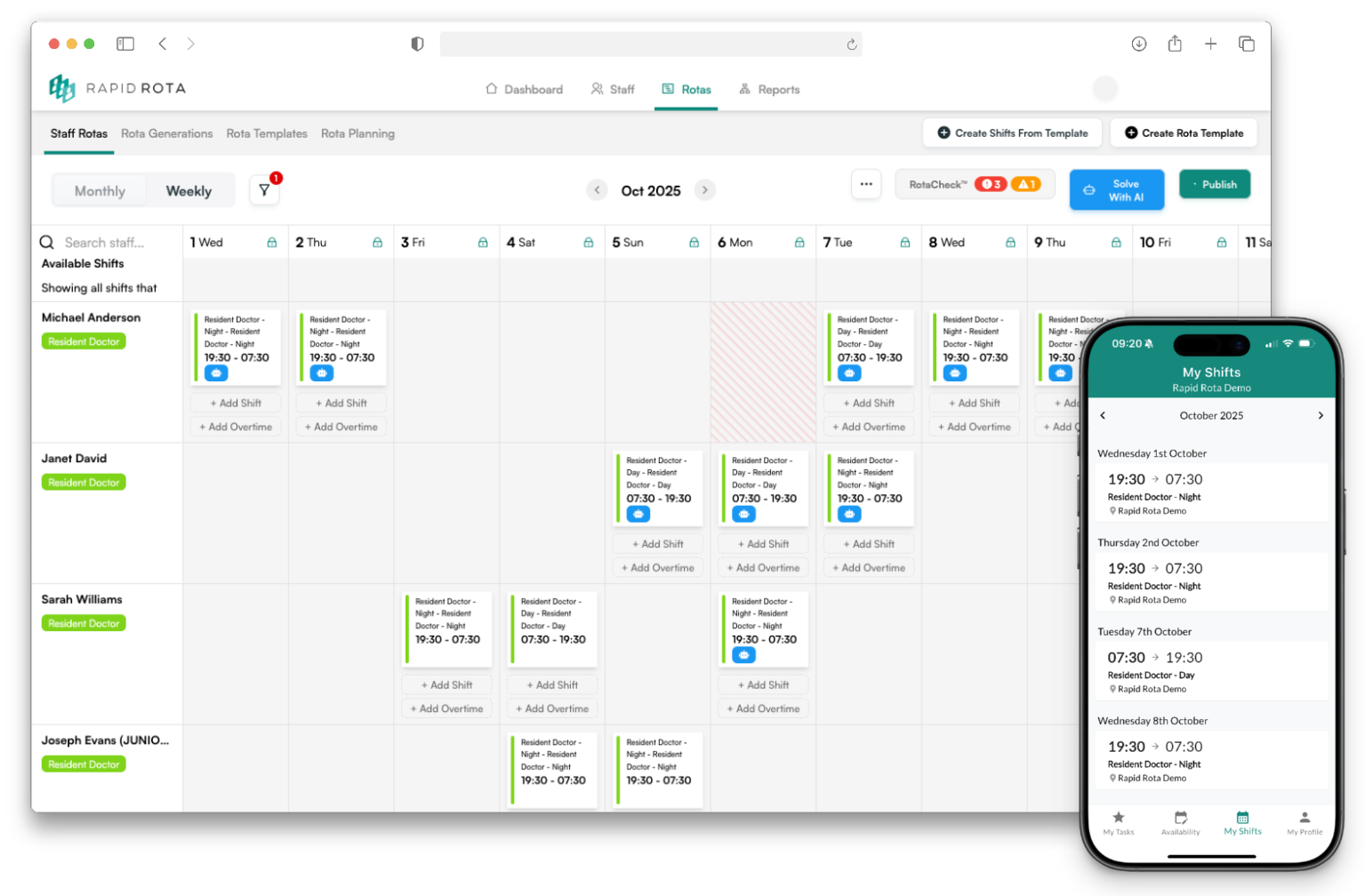Effortless Healthcare Rota Planning
Save time, cut stress, and keep shifts covered – powered by AI.

Save time, cut stress, and keep shifts covered – powered by AI.

NHS healthcare organisations are often running up to 500 legacy applications behind the scenes — despite clear strategies to make Electronic Patient Records (EPRs) the primary access point for clinical content. This proliferation of outdated systems creates a fragmented and inefficient technology environment, which directly affects areas like rota scheduling, appointment coordination, and patient care.
Several factors contribute to the ongoing reliance on outdated software:
This creates hidden infrastructure complexity that makes innovation, compliance, and efficiency difficult.
Legacy apps are typically isolated, dispersed across departments, and rarely integrated. This makes it nearly impossible to coordinate rotas and staffing across sites. Even NHSX has acknowledged that true interoperability is “extremely complex” and likely to take “years”.
While the DHSC published its Vision for Digital, Data and Technology in 2018, there’s still no comprehensive implementation plan. NHS leadership faces criticism for delayed timelines and over-reliance on legacy approaches.
A major blocker to digital transformation is a shortage of technical leadership and operational capacity. As a result, outdated scheduling tools are left untouched — despite being core to staff planning and care delivery.
The result of legacy tech in rota and scheduling systems includes:
Departments stuck with inefficient systems struggle to scale, absorb pressures, or meet modern expectations.
Modern, integrated rota solutions are essential for cutting through legacy complexity. With AI-driven optimisation, real-time updates, mobile access, and compliance features, digital scheduling platforms like Rapid Rota offer:
The NHS’s reliance on hundreds of outdated applications is not just an IT headache — it’s a barrier to care delivery and workforce efficiency. Upgrading rota systems is a tangible first step toward modernising operations, improving staff wellbeing, and delivering care that keeps pace with demand.
Rapid Rota gives you the power to plan smarter, faster, and fairer.